A video of 1970s Liverpool - and the case for a new local newspaper
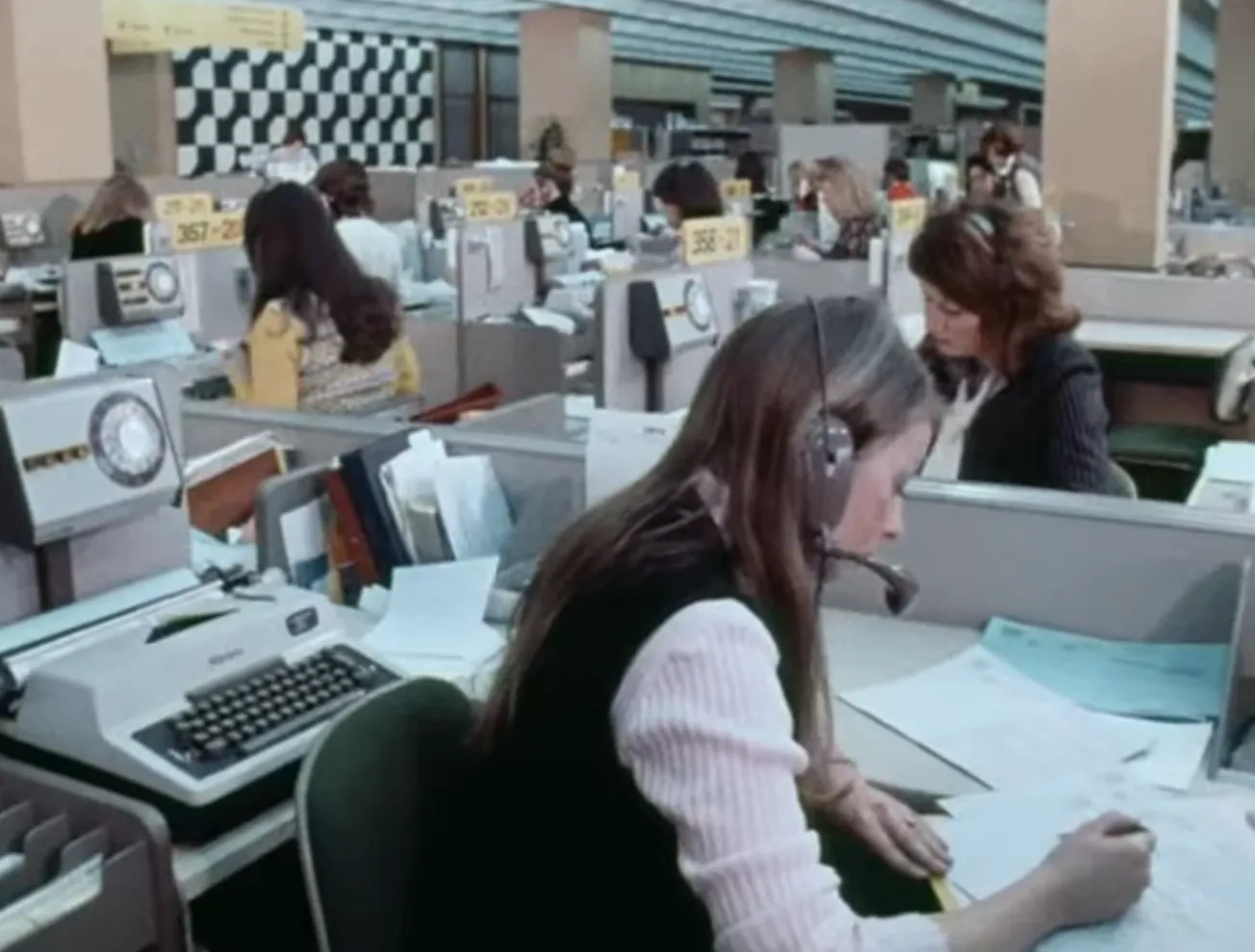
'Where is that investigative journalism going to come from in the future?'
Dear readers, today’s edition of The Post is about something you have seen with your own eyes: the alarming collapse of local journalism. You probably didn’t plan to spend 10 minutes of your weekend reading about the economics and history of the newspaper industry but we hope this piece helps to explain how things have changed, and why there’s such an urgent need for a new model for journalism in this city region.
But first: Thursday was a very exciting day for us here at The Post and our growing community of readers. We launched our paid memberships, and dozens of you have already signed up — we now have members from Liverpool, across the Wirral, up in Southport and down in Halton. Of course, we need lots more to join them if this venture is going to be viable, but it’s great to be under way.
To those members: huge thanks, and welcome to the community. You are among the very first patrons of a totally new model for quality journalism in this city region, and you will start getting members-only stories next week. We have some cracking pieces lined up.
You now have three days left to join us as a member before our first members’ stories go out — just hit the button below. It’s £7 a month or £65 a year, and you can cancel at any time with two clicks.
We loved this email from Paul, one of our first members:
Best of luck Team, I really hope the launch goes well. I am very excited about the potential long-term impact on the city of having a decent quality local newspaper. I don’t think it’s a coincidence that a lack of quality journalism here has coincided with the corruption we’ve all witnessed. I hope that one of the roles you will be able to play is to hold our leaders to account. I’m considering my subscription like an investment in the future of the city! Also, it’s just really nice reading local stories!
If you have any friends, who might be interested in joining us or colleagues who might want to read The Post, please do share a link to our website or forward this newsletter. The very best publicity we can get is our core readers putting us out there on social media or sharing us around via email or in their WhatsApp groups.
A lost world, and the case for a new local newspaper
A few weeks ago, one of our readers sent us a link to a video on YouTube. It was made in 1973 and over 23 minutes it depicts a completely different world.
In many ways, the video — which is called Tomorrow’s Merseysiders — shows a much poorer Liverpool. It shows empty streets and endless rows of housing reduced to rubble during the years of slum clearance. There are shots of kids throwing rocks at windows, and concerns voiced by adults about the young generation growing up hopeless, angry and violent.
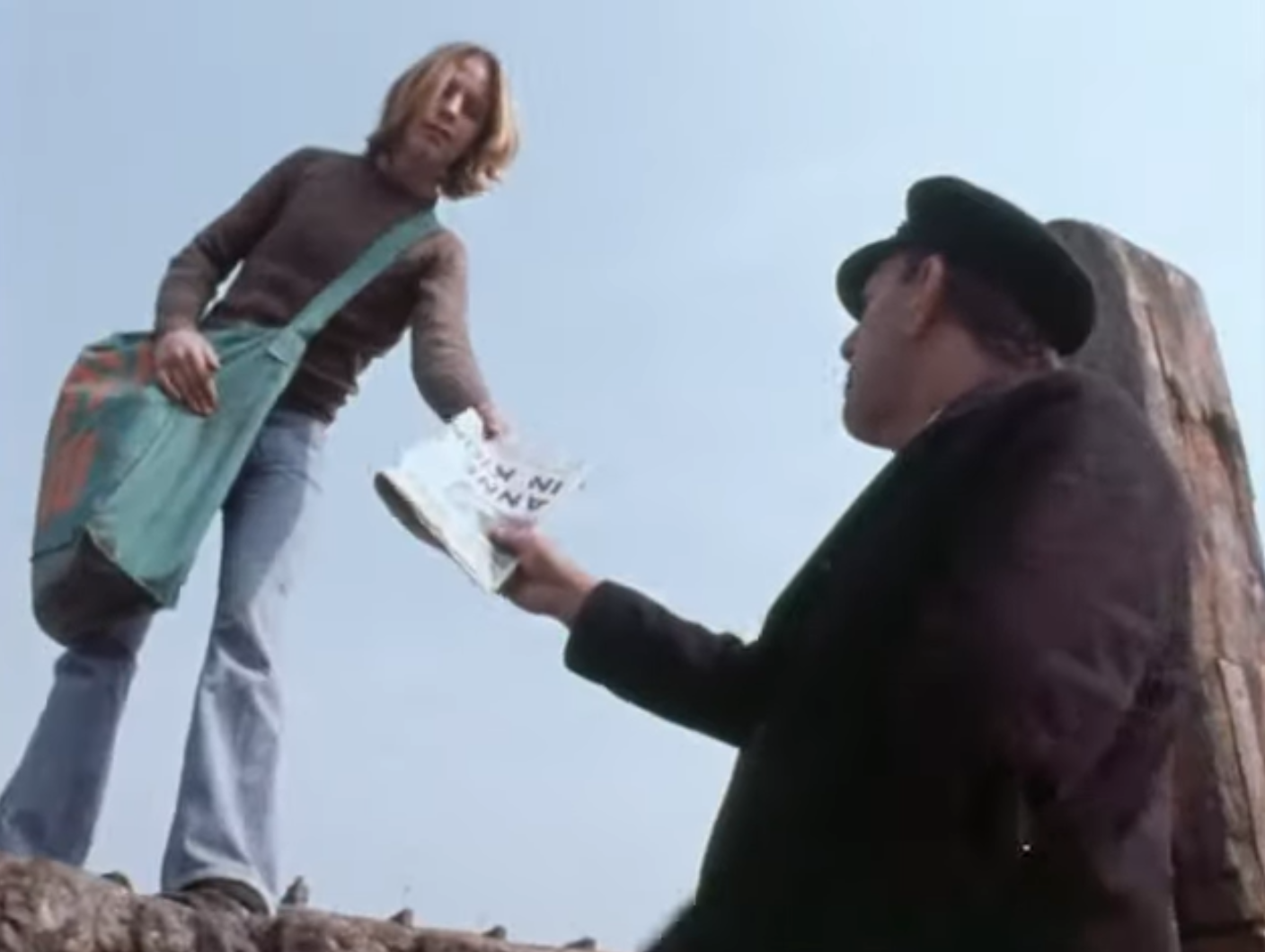
But in one important respect, the video shows something that was much richer in 1973, something that was much more successful and energetic and treasured than it is now: local news. The video was produced by the Daily Post and Echo company, and it takes us inside a fantastically bustling newsroom, in which hundreds of people are at work.
Editors meet in a large conference room to talk about the stories of the day and take instructions from their Editor-in-chief. Copy takers field calls from correspondents in Birkenhead and Southport and North Wales. We see dozens and dozens of page editors, reporters, cartoonists, feature writers and photographers sitting cheek-by-jowl and tapping away on loud typewriters.
One of the most striking scenes is the advertising department, where banks of women book ads from people who have a house to sell or a business to promote or a job to advertise. “As we’ve said before, there is a lot of competition in the market, so what we will do is book the advert provisionally,” one sales rep tells a caller.
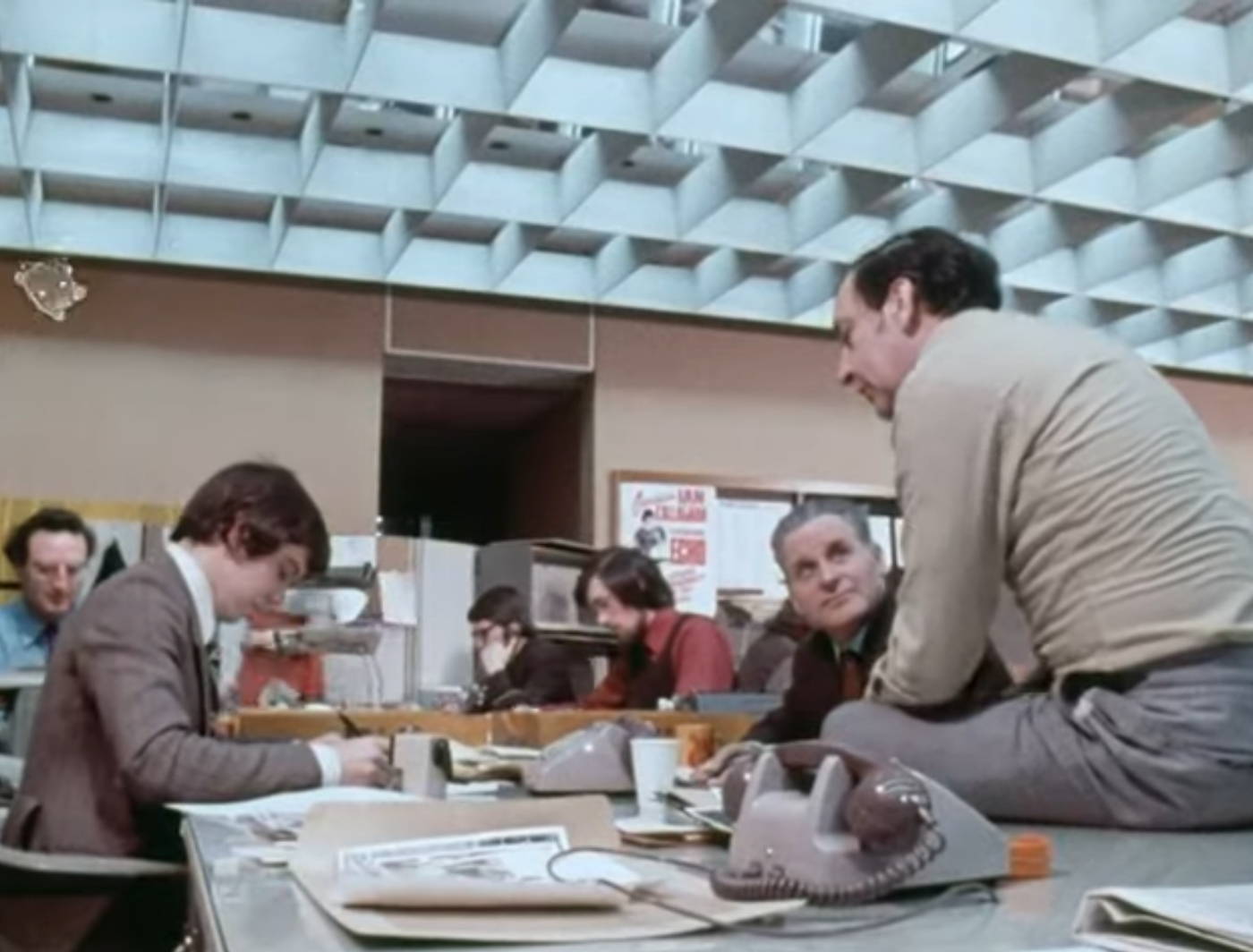
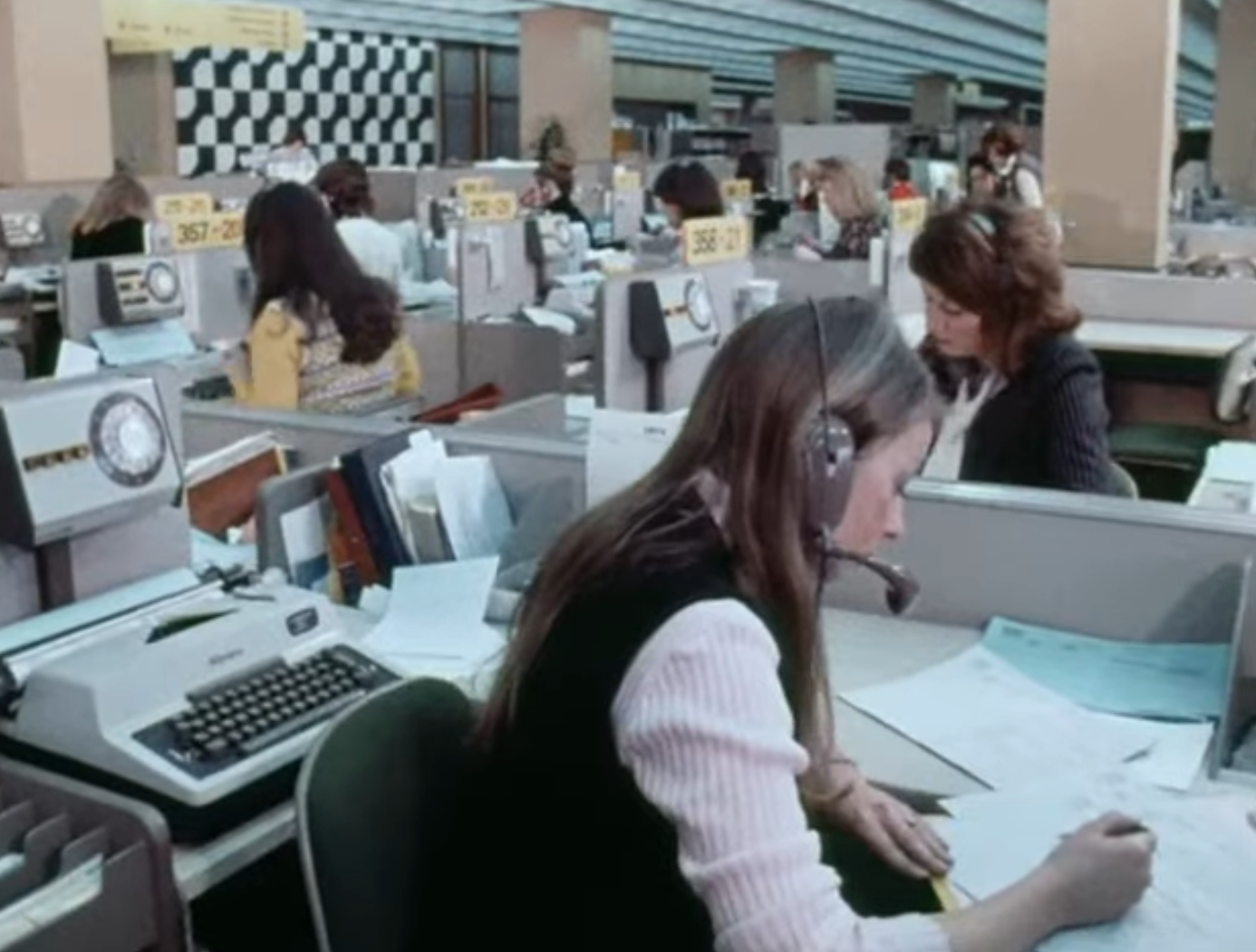
Many things have improved in the world since that video was shot, not least the rolling back of the sexism that meant all those advertising calls were taken by women and the editor’s conference was attended only by men. But there’s no doubt: the vibrancy of local media that existed in the second half of the twentieth century has largely evaporated.
Local newspapers have shrunken down or disappeared entirely. Many of the journalists who used to give outlets their richness and soul — like photographers and feature writers and culture critics — have seen their roles eliminated in drastic rounds of cost-cutting. The Daily Post, a newspaper that started printing in 1855 and used to have correspondents not just across this region but also in London and Paris, stopped publishing as a daily newspaper almost a decade ago after years of decline.
An economic collapse
So why has it happened? Part of the reason is well known: the internet meant that many people stopped buying newspapers. But even more fatal was the loss of what we can see in the video: that huge room of ad sales reps, which used to make local news such good business. Since the turn of the millennium and the rise of the internet, local advertisers have migrated en masse to pastures new.
Car ads started going to specialist sites like Auto Trader. People started buying and selling things on eBay, not via newspapers. Local businesses began to find customers much more effectively with ads on Facebook and Google. Home ads went to specialist property sites, of which there are now dozens. Bit by bit, the industries whose advertising paid for all of the journalism we can see in the video found new and more targeted places to spend their money. According to recent research, local news companies generated £3.1 billion from advertising in 2004, and just £0.5bn last year.
A decade into the 21st century, the economics of local news had been blown up, and local newspapers like the Echo were now desperately chasing the same online advertisers as every other site on the internet, including ones with much better targeting and global audiences. Suddenly the priority was driving as much online “traffic” as possible because you needed millions of clicks each week to make the sums add up. Whereas newspaper advertising used to be highly lucrative, now sites like the Echo will be lucky to earn a couple of pounds for every thousand clicks.
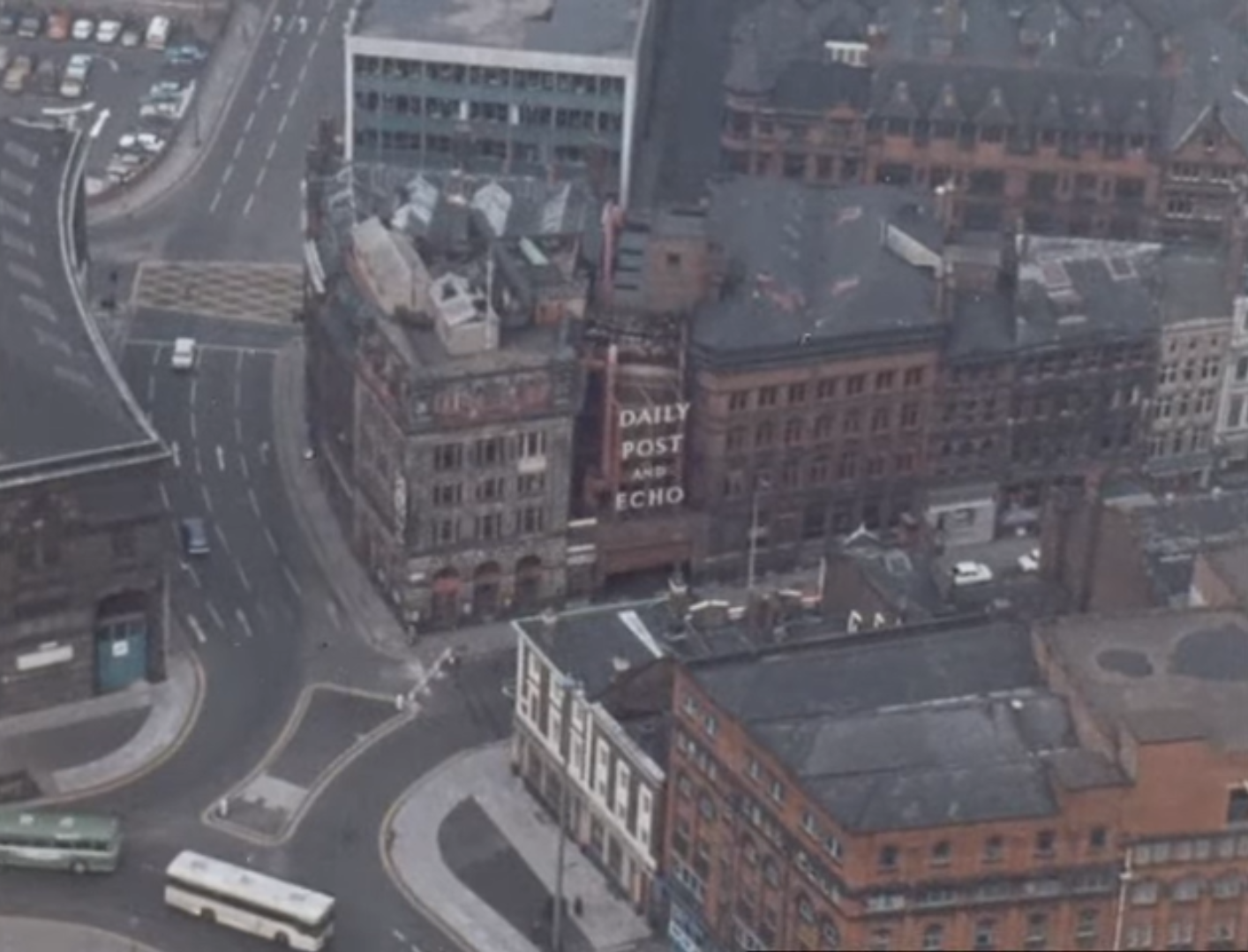
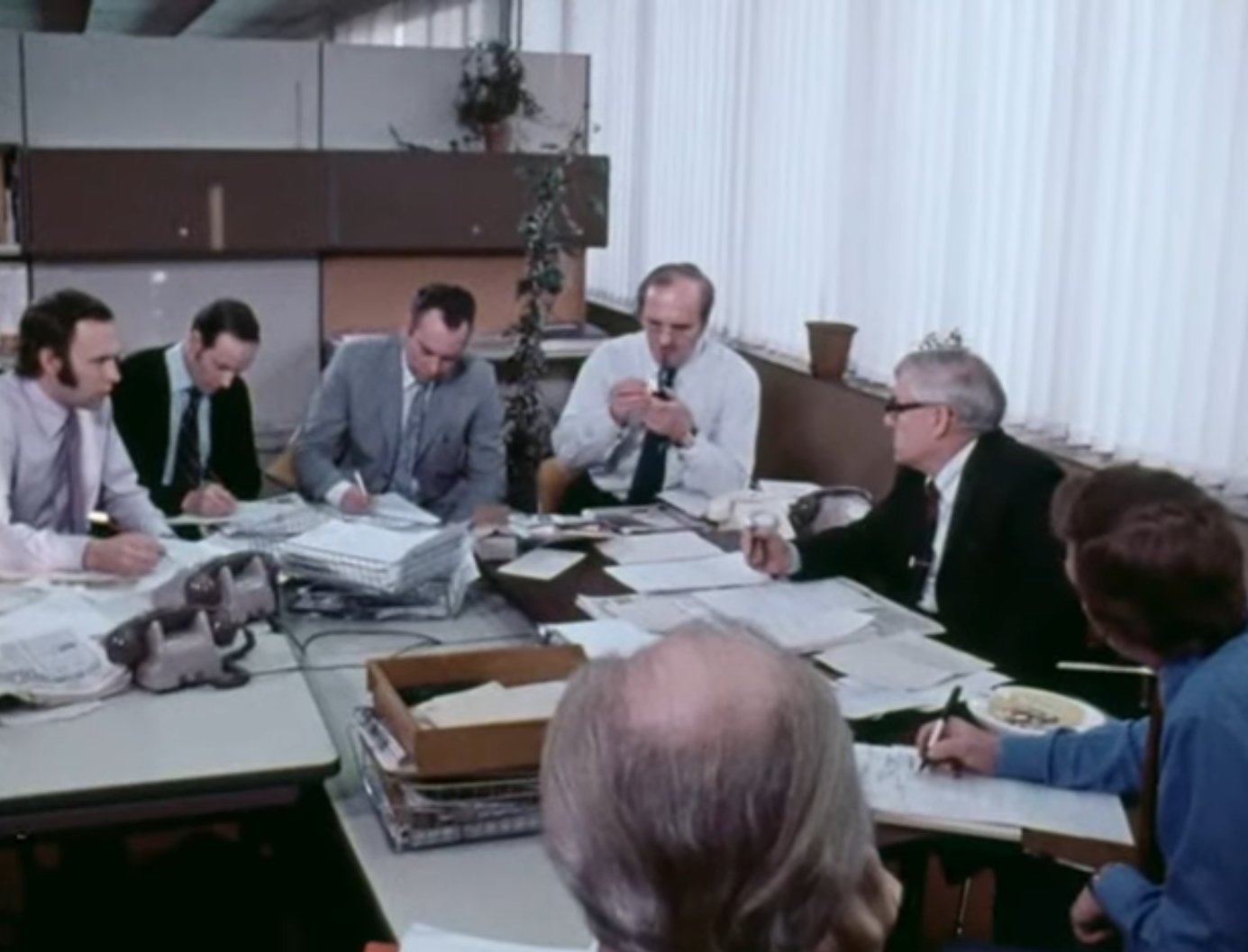
“They wouldn't touch a story unless it would get 5000 page views,” one senior newspaper executive told us while describing his visit to the Echo’s office a few years ago. The paper had set itself a massive traffic goal, and “it was all about that target,” says the executive. Some journalists were targeted to bring in 1.25 million page views a month.
Because most of the advertising is no longer local, the audience doesn’t need to be local either. If you can get a million clicks on a story about a deal at Home Bargains or a viral story about something Kate Garraway said on TV this morning, that’s what pays the bills. It doesn’t matter if most of the readers live hundreds of miles from Merseyside.
That’s the reality for most local newspapers now — not because their journalists want to write about viral national topics, but because that’s what the remorseless logic of the online advertising model requires. There is some really valuable reporting being published on sites like the Echo (some of which we link to in our own newsletters) but it is lost in the whirling mass of stories that have nothing to do with the local area and is rendered almost unreadable by being covered in ads.
Many newsrooms now operate with skeleton staffs, who are asked to write more and more stories to boost online traffic. That's why when you look at local newspapers sites, you find relatively few stories involving real journalism — making calls, getting documents or speaking to sources. It’s why you see so many stories based on a single tweet or something that someone said on Instagram.
On his podcast recently, the Liverpool business leader Frank McKenna said that when he speaks to local journalists these days, they tell him: “Frank, I’ve got half an hour to turn this around.” On the podcast, McKenna asks his guest: “Where is that investigative journalism going to come from in the future?”
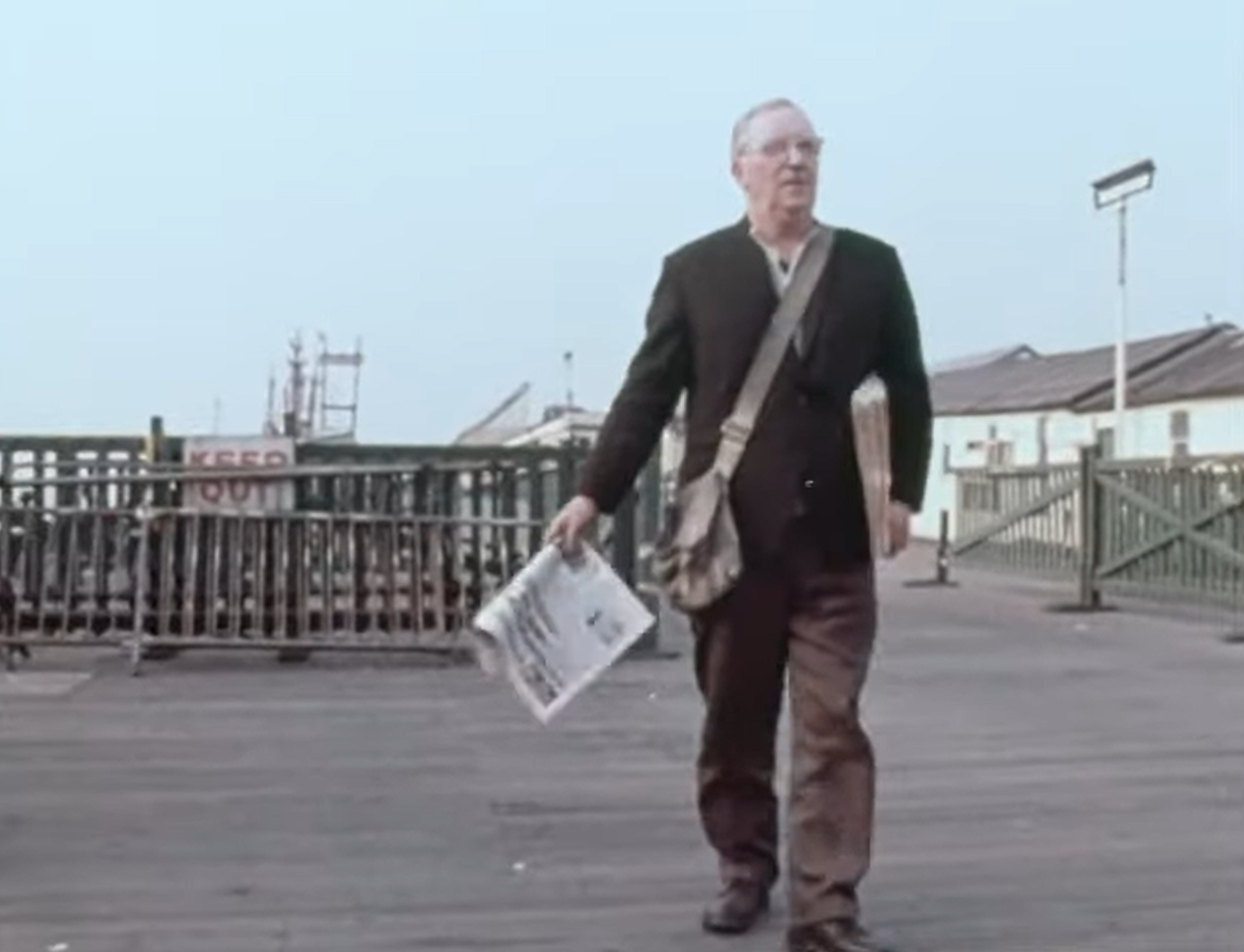
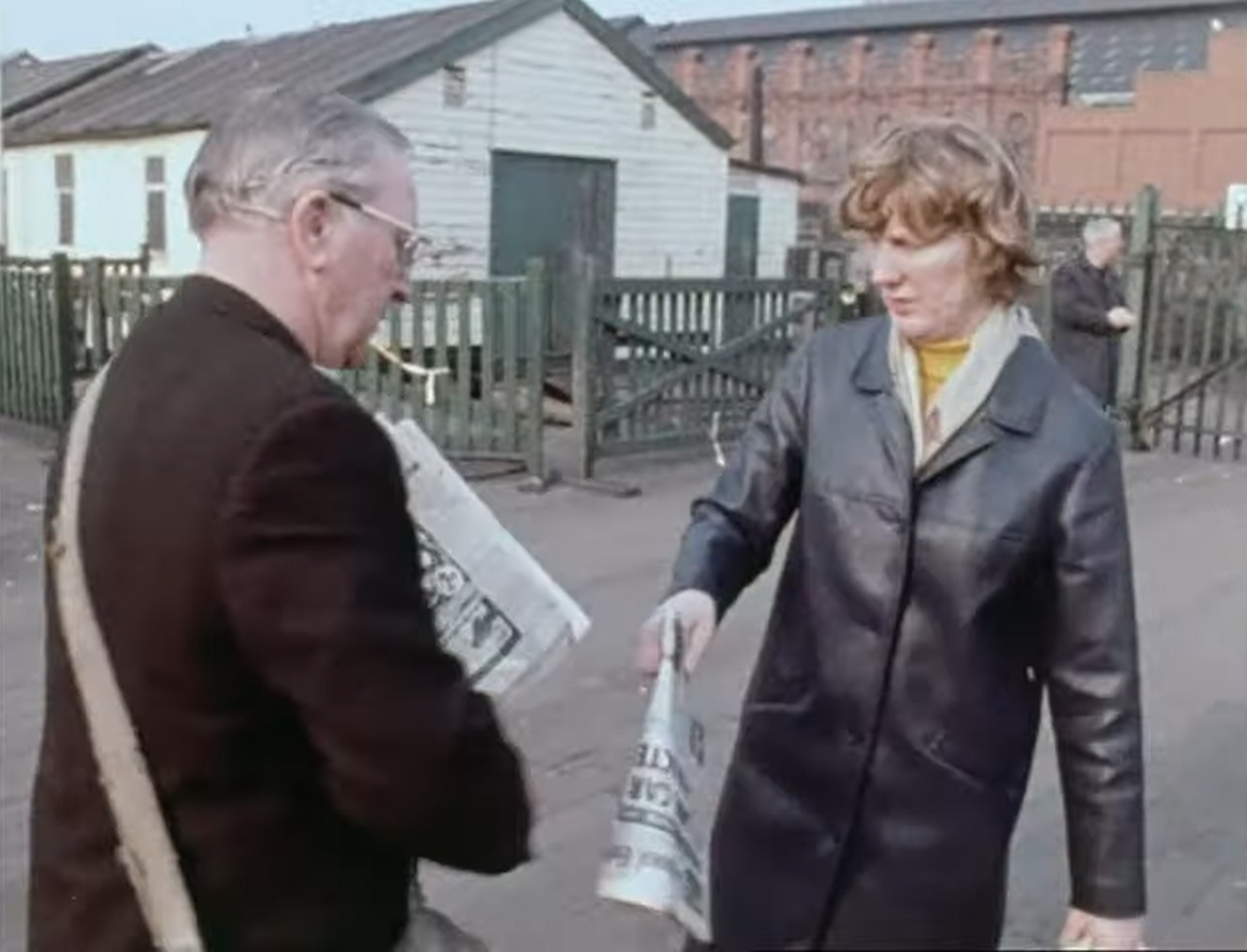
The people who take jobs in local media do not want to write stories in half an hour, and yet when you click on the profiles of many reporters, you will find half a dozen stories published that day. Sometimes it’s twice that number. They are forced to do so because local advertising has gone elsewhere, online advertising pays peanuts and the huge companies that own 85% of local newspapers (like Reach Plc, owner of the Echo and the Manchester Evening News, as well as the Mirror and the Express) have chosen to pursue massive online traffic rather than focusing on local audiences and charging subscriptions.
A new model
It’s no coincidence that all the highest quality news organisations that have flourished in the past few years — titles like the Economist and the New York Times — are ones that have focused on subscriptions. It makes sense: they are funded directly by their readers and therefore they serve their readers. If they mislead you or trick you into clicking on something that isn’t what it purports to be (known as “clickbait”), you will stop paying. So generally speaking, they don’t do those things.
That’s our model too. We call our Post subscribers members, because they are members of a community who discuss stories with each other, send us tips and are part of something, rather than just paying for it. But the key thing is: our funding comes from the people we do our journalism for, not faceless digital ad networks who encourage us to pile up traffic from anywhere we can get it.
Very happy to have subscribed to @liverpoolpost - nice to support proper journalism as opposed to clickbait. And at the rough equivalent of 25p a copy, far cheaper than a physical newspaper
— Simon Jones (@ariadneassoc) 2:54 PM ∙ Nov 11, 2021
There is simply no way of returning to old fashioned journalism that doesn’t involve many of us paying for news again. It was normal to pay for journalism for well over 100 years, when people bought one or two newspapers a day, and it is becoming the norm again, as we begin to realise the disastrous loss of local coverage brought about by relying on online advertising. It will take a long time for new subscription-funded outlets to get anywhere near the kind of buzz and optimism that you can see in the video, and to make local journalism respected like it was during that era. But you have to start somewhere.
The @liverpoolpost newsletter is so good!! Get on it.
— • Julia • (@_juleps) 6:06 PM ∙ Oct 27, 2021
You have seen the kinds of stories we want to publish on The Post — but it’s equally important to be clear about what we won’t publish. We promise to never send you stories that amount to re-written press releases, whether they come from the police, the council or businesses. We won’t publish stories based on what one person said on social media or headlines that trick you into clicking on something that isn’t what it looks like. And when we take on a story, we commit to doing proper research: reading reports, speaking to the people impacted by it, getting the input of academics and experts, and sending you a story that you enjoy reading and helps you to understand the world a bit better.
We will publish small numbers of stories, but they will be the kinds of local stories you can’t get anywhere else. And by doing so, we will try to give this region journalism it can be proud of. If that sounds like something you want to be part of and something you want to support, please do join us as a member now.

Comments
Latest
‘Cutthroats and sell outs’: An editor’s note about Laurence Westgaph’s threats
Ian Byrne: Why the country — not just Liverpool — needs the Hillsborough Law
The ‘charisma bypass’: Why Liverpool’s leaders are so forgettable
The Mersey’s clean-up cost £8 billion. So why is it still so dirty?
A video of 1970s Liverpool - and the case for a new local newspaper
'Where is that investigative journalism going to come from in the future?'